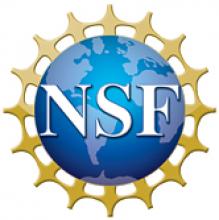Session Area Descriptions
Biomanufacturing for Sustainability
Valorization of waste carbon via metabolic engineering and synthetic biology tools for advancing academic research and industrial sustainable production of chemicals, biodegradable materials, enzymes and other value-added products.
AI and Computation for Synthetic Biology
Leveraging computation and AI to engineer biological processes. The work can be basic or applied, including the development of new tools.
Environmental Synthetic Biology
Engineered host-microbe interactions, single cell analysis, and the manipulation of marine and soil microbial communities to tackle ecological challenges and enhance environmental resilience. Emphasis on novel methodologies or tool development, insights into microbial community dynamics, and applications in sustainable ecosystem management, bioremediation, and environmental engineering.
Molecular Engineering and Evolution
Using rational and evolutionary approaches to design molecular components that carry out specific biological functions for tailored applications.
Plant Synthetic Biology
Plant genetic engineering and tools, plant-microbe interactions, biofuel feedstock crops, sustainability, remediation of toxins/pollutants, plant/soil health monitoring & sensors, genetic biocontrol.
Automation for Synthetic Biology
Advances in hardware, software, and automation tools/devices to accelerate genetic design and streamline synthetic biology workflows. This session will include insights into cutting-edge technologies and their applications in research and industry.
Synthetic Biology for Cell and Gene Therapy
Engineering of viruses, bacteria, and cells for diagnostic or therapeutic use in humans and animals.
Building With Biology
Building and characterizing molecular, cellular, and multicellular patterns, structures, and materials utilizing self-assembly, synthetic development, bioprinting, and other experimental and theoretical approaches.














